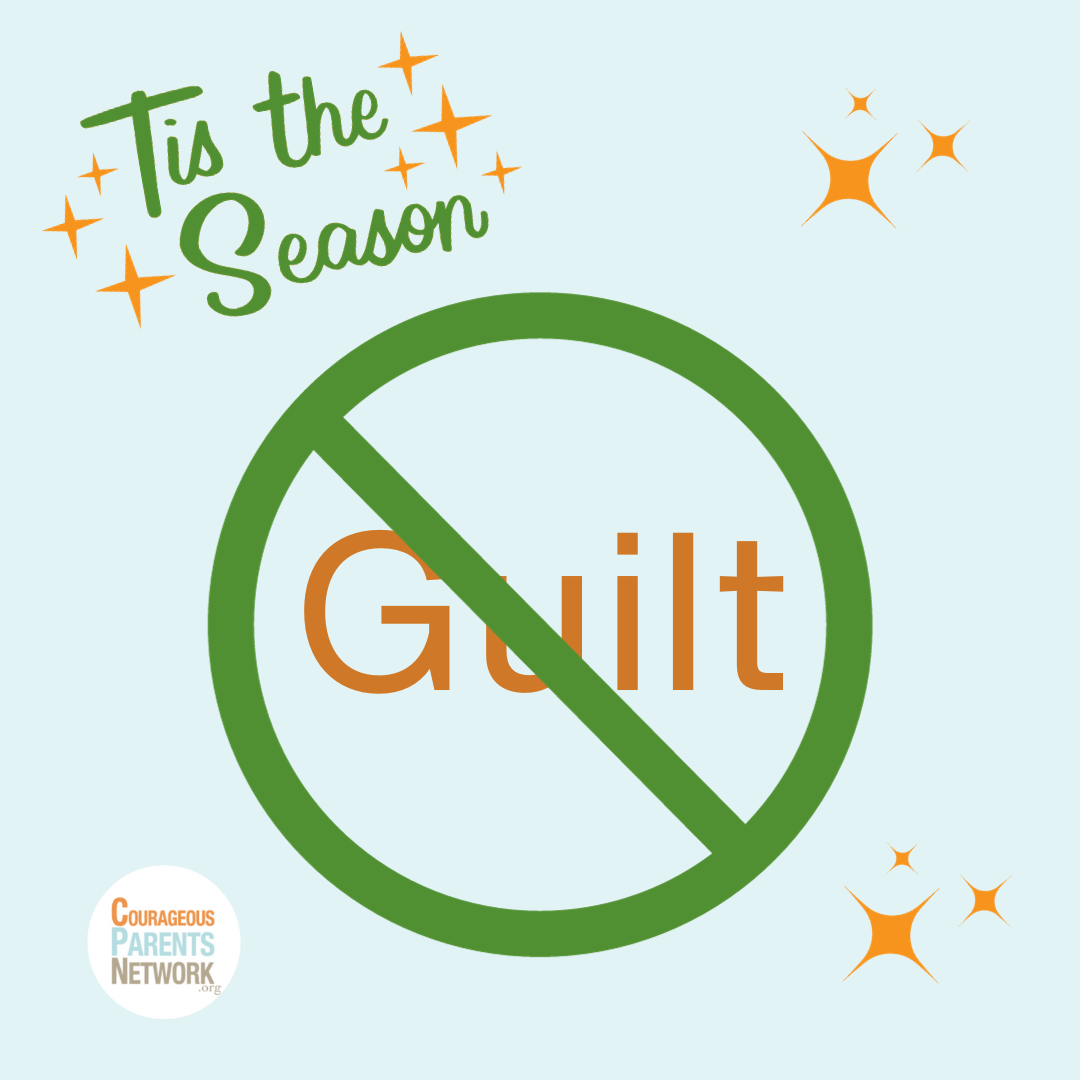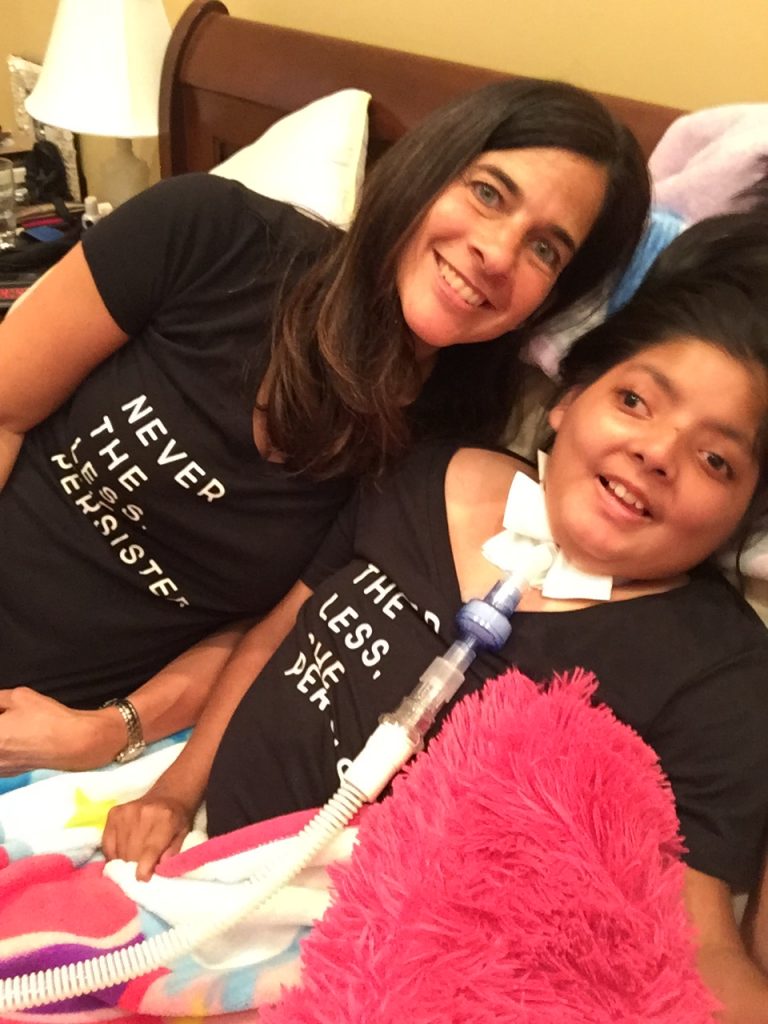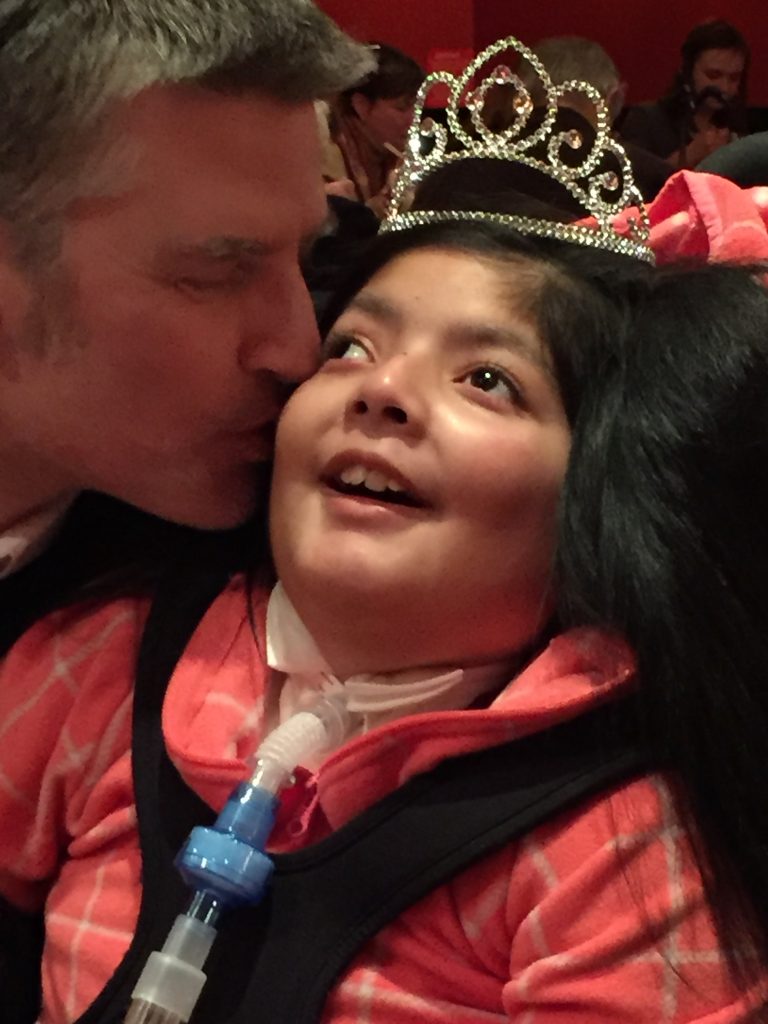12/5/2023
·Enable high contrast reading
Grief, Guilt, and Gratitude

If I’d given it any thought ahead of time – before the anticipatory grief and the ambiguous grief and the conventional grief wrapped around me like a weighted blanket – I’d have imagined the sadness. Grief as I understood it then comes when you lose someone you love. Sadness would be the obvious response. And because I learned about the supposed “five stages of grief” in my Intro to Psych course, I wouldn’t have been surprised to experience a bit of anger or denial, too.
But the layers of guilt took me by surprise when they showed up and settled in for an extended stay.
In general, guilt is something I’m fairly intimate with. I feel guilty when I burn the chicken or don’t help my child study adequately for his test or forget my friend’s birthday. But the kind of guilt I’ve met through all aspects of grief has little in common with these fleeting feelings of remorse.
When my daughter Dalia had a tracheostomy and lost her ability to speak, she came up with new ways to communicate. She’d point and nod and mouth the words she once enunciated in her sweet singsong voice. And sometimes, she’d slap the bed.
 At night, after I emptied the syringes of medicine into her g-tube and set up the food pump and read from her favorite book and sang the good-night song to her, I settled into the armchair to wait for the overnight nurse. But Dalia didn’t always want to go right to sleep. She hit the bed to summon me, wanting more blankets or fewer, wanting me to rearrange her pillows or rub her forehead. I got up quickly the first and second and even third time. But by the fifth or sixth I was annoyed. I was tired. I wanted to read my book. I knew she was teasing me with her continued requests.
At night, after I emptied the syringes of medicine into her g-tube and set up the food pump and read from her favorite book and sang the good-night song to her, I settled into the armchair to wait for the overnight nurse. But Dalia didn’t always want to go right to sleep. She hit the bed to summon me, wanting more blankets or fewer, wanting me to rearrange her pillows or rub her forehead. I got up quickly the first and second and even third time. But by the fifth or sixth I was annoyed. I was tired. I wanted to read my book. I knew she was teasing me with her continued requests.
How in the world could I have gotten frustrated? I felt guilty the next day and I feel guilty today, years later. Dalia couldn’t fix her own blankets or pillow. I’d give my limbs to be able to do it for her now.
There were also times when I felt sorry for myself. Why did my daughter have a rare disease? Why couldn’t I go out to dinner with my husband without hiring both a nurse and a babysitter to take care of my kids? Why did I have to squeeze appointments with my daughter’s physical therapist and pulmonologist and respiratory therapist into my busy workday?
Then I saw Dalia’s eyes light up when I went to pick her up early from school for the appointments. I watched her work so hard to move her legs during therapy or kick her legs with glee when she heard “Shake It Off.” She didn’t seem to feel sorry for herself at all. I felt guilty for being upset about the relatively small challenges I was facing while she was meeting her huge ones with grace and smiles.
On the flip side, I found a way to feel guilty when I was happy, too. When we raced Dalia up and down the ramps at the skatepark in her wheelchair or had water fights with the saline bullets or danced together, even when all Dalia could move was her shoulders, joy pushed sadness to the fringes of the room. But then guilt peeked around the corner. How could I be happy with the way things were? Did that mean we weren’t trying hard enough to change the trajectory?
 Since Dalia passed away, there have been so many times guilt has reared its head. When my husband and I took our other two kids on a hiking trip to Arizona I felt guilty having so much fun doing something that wouldn’t have been possible when Dalia was alive. When I enjoy the freedom of being able to go out to dinner at a moment’s notice or take a trip to New York without weeks of planning, I feel guilty.
Since Dalia passed away, there have been so many times guilt has reared its head. When my husband and I took our other two kids on a hiking trip to Arizona I felt guilty having so much fun doing something that wouldn’t have been possible when Dalia was alive. When I enjoy the freedom of being able to go out to dinner at a moment’s notice or take a trip to New York without weeks of planning, I feel guilty.
Years after my father died, I found a sealed envelope with my name on it in one of his files. It was a letter he’d meant for me to read after he’d passed away. In it he wrote, “Never feel even a twinge of guilt when you laugh, when you forget, when you live as fully as you can.”
Now, when I feel guilty, I think about what my father said. I believe Dalia would agree with him.
So where does that leave us as we brave the season of gratitude? Can we be grateful when we’re grieving? And if we feel grateful, should we then feel guilty?
There’s a saying inscribed on throw pillows and journals and half of the other merchandise in Home Goods: “Choose Happy.” The saying gives me pause. I love the idea in theory, but it seems wildly simplistic, a chastisement for people who have every reason to be sad.
But if we can choose what we do feel, maybe we can choose what we don’t feel, too. I wonder if it’s possible to choose not to feel guilty. That’s a throw pillow I could get behind.
There’s nothing to be learned from guilt at this point. I know I lived every minute as fully as I could with my daughter. I know that moments of frustration or sadness were par for the parenting course. Most importantly, I know she’d want her memory to bring me joy, not regret.
Besides, I am in fact eternally grateful. I’m grateful that I got to be Dalia’s mother, that she showed me what it means to be brave and empathetic and to radiate joy.
There will always be room for grief. I welcome it as a reminder of my love. But I’m going to do whatever I can to close the door on guilt. Grief and gratitude can stay as long as they want, but guilt isn’t welcome here anymore.
Jessica Fein writes about the mingling of joy and sorrow, mothering a child with a rare disease, and staying rooted when life tries to blow you down. Listen to her podcast, “I Don’t Know How You Do It,” including her discussion with Kelly Cervantes.
Her memoir, Breath Taking: Rare Girl in a World of Love and Loss, is coming in May, and is available for preorder now at Amazon.com and Bookshop.org. Visit her website or connect with her on IG for real talk about love and loss @feinjessica
Jessica is a CPN Blogger in Residence, an opportunity available through support from Sanofi.





